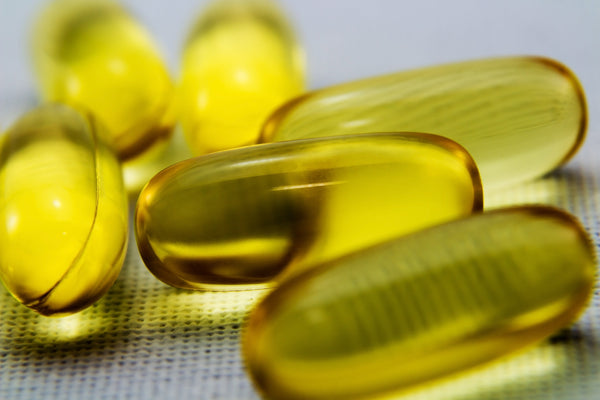Out of the many vitamin deficiencies that one can have, vitamin D3 deficiency is perhaps the most common. For the uninitiated, vitamin D3 (cholecalciferol) is one of the two forms of vitamin D - an important fat soluble vitamin that is important for all bodily functions. The other form is vitamin D2 (ergocalciferol), a vitamin that cannot be synthesized by the body on its own. Vitamin D3 can be synthesized when you are exposed to sunlight. The sun’s UV rays convert the cholesterol present in the skin to vitamin D, which plays a vital role in improving one’s immunity. As per research, Vitamin D3 is more effective at increasing levels of vitamin D in the blood, which is important for one’s overall wellbeing.
Vitamin D3 deficiency can lead to symptoms such as tiredness, fatigue, hair loss, declined immune health, muscle soreness, and delayed wound healing among other things. Research shows that it may also help guard against and improve immunity to combat severe COVID-19 symptoms. Given the varied benefits that this vitamin can have on the body, let’s dive in and look at them in detail.
Benefits of Vitamin D3
The primary benefits of vitamin D3 include improved cognitive health and function, enhanced bone density, strengthened immune system, a lesser proclivity to developing autoimmune diseases, and a healthy weight loss, among other things.
Bolstered Immune System
Being a powerful modulator of the immune system is the primary health benefit of vitamin D3. This vitamin is vital in not only helping the body protect itself from different infections and disease causing pathogens but also in preventing the body from attacking itself. In short, it helps in preventing the occurrences of autoimmune diseases.

Improved Cognitive Function
A study published in 2018 by a team of Indian researchers showed how vitamin D3 plays a vital role in lowering the risk of cognitive and neurodegenerative diseases like dementia and Alzheimers. Perhaps that is why supplementation of this vitamin is important for those in the aging population in particular.
Aids in healthy weight loss
A few recent studies have found a link between vitamin D and obesity. This link between the two is likely because of the impact that this essential fat soluble vitamin has on the metabolism of the body, along with the modulation of the immunity. Thus, to sum up, healthy levels of vitamin D3 in the body will aid in losing weight, when combined with a nutritive diet and regular exercise.
Usually vitamin D3 and K2 (menatetrenone) are paired together as they prove to have symbiotic effects. They both have their independent effects on the body in balancing calcium, strengthening bones, and improving cardiovascular health. That is why most vitamin D3 supplements will contain vitamin K2 as well.

What are the sources of Vitamin D3?
One of the reasons why people find it difficult to maintain adequate levels of vitamin D3 in the body is because there aren’t many foods containing this essential nutrient. People can obtain this vitamin either through foods, supplements or sunshine.
Some of the foods that contain this vitamin include:
- Milk
- Cheese
- Egg yolk
- Fishes like mackerel, tuna, salmon, sardine, to name a few
- Foods fortified with vitamin D like cereals, breads, orange juice, and soy milk
However, the most ideal way of sourcing this vitamin is by getting out in the sun for at least 30-45 minutes a day. Having said that, there must also be a constant form of nutrition either through diet or supplementation.

What should the dosage be like?
While you may hardly come across cases involving vitamin D toxicity, there is not much evidence that states taking more than a higher limit of the suggested dosage is helpful for your health. In case of supplementation, it is always best to consume as per a particular dosage.
- If you’re taking vitamin D3 supplements, you shouldn’t require more than 2,000 IU (international unit- internationally accepted amount of substance) daily.
- As per research, adults should consume a minimum of 600 IU of vitamin D3 each day and 800 IU if you are a senior citizen.
- Kids should get a minimum of 600 IU of this vitamin every day, while infants below the age of 12 months should get 400 IU per day.
You can determine your vitamin D levels through a blood test from time to time. However, when it comes to supplements, it is best to consult a doctor before consuming them. In some cases, excess quantities of vitamin D can cause soft tissues (including those in the heart valves and coronary vessels) in the body to calcify. It can also cause renal failure, or cardiac arrhythmias.
While there are many vitamin D3 supplements in the market, Wellbeing Nutrition's vitamin D3 Melts are formulated using natural ingredients that are a safe and steady source of the vitamin. It contains specially sourced organic plants called lichen (which naturally stores vitamin D3), coconut oil, pure vitamin K2 extracted from fermented chickpeas, and astaxanthin (an important antioxidant).
References:
- Weir EK, Thenappan T, Bhargava M, Chen Y. Does vitamin D deficiency increase the severity of COVID-19?. Clin Med (Lond). 2020;20(4):e107-e108. doi:10.7861/clinmed.2020-0301. (https://www.ncbi.nlm.nih.gov/pmc/articles/PMC7385774/)
- Aranow C. Vitamin D and the immune system. J Investig Med. 2011;59(6):881-886. doi:10.2310/JIM.0b013e31821b8755. (https://www.ncbi.nlm.nih.gov/pmc/articles/PMC3166406/)
- Yang CY, Leung PS, Adamopoulos IE, Gershwin ME. The implication of vitamin D and autoimmunity: a comprehensive review. Clin Rev Allergy Immunol. 2013;45(2):217-226. doi:10.1007/s12016-013-8361-3 (https://www.ncbi.nlm.nih.gov/pmc/articles/PMC6047889/)
- Yamini P, Ray RS, Chopra K. Vitamin D3 attenuates cognitive deficits and neuroinflammatory responses in ICV-STZ induced sporadic Alzheimer's disease. Inflammopharmacology. 2018 Feb;26(1):39-55. doi: 10.1007/s10787-017-0372-x. Epub 2017 Jul 12. PMID: 28702935. (https://pubmed.ncbi.nlm.nih.gov/28702935/)
- Khosravi ZS, Kafeshani M, Tavasoli P, Zadeh AH, Entezari MH. Effect of Vitamin D Supplementation on Weight Loss, Glycemic Indices, and Lipid Profile in Obese and Overweight Women: A Clinical Trial Study. Int J Prev Med. 2018;9:63. Published 2018 Jul 20. doi:10.4103/ijpvm.IJPVM_329_15. (https://www.ncbi.nlm.nih.gov/pmc/articles/PMC6071442/)
- Ushiroyama T, Ikeda A, Ueki M. Effect of continuous combined therapy with vitamin K(2) and vitamin D(3) on bone mineral density and coagulofibrinolysis function in postmenopausal women. Maturitas. 2002 Mar 25;41(3):211-21. doi: 10.1016/s0378-5122(01)00275-4. PMID: 11886767. (https://pubmed.ncbi.nlm.nih.gov/11886767/)
- Robert P. Heaney, Robert R. Recker, James Grote, Ronald L. Horst, Laura A. G. Armas, Vitamin D3 Is More Potent Than Vitamin D2 in Humans, The Journal of Clinical Endocrinology & Metabolism, Volume 96, Issue 3, 1 March 2011, Pages E447–E452, https://doi.org/10.1210/jc.2010-2230. (https://academic.oup.com/jcem/article/96/3/E447/2597204)
- Vitamin D, (https://www.mayoclinic.org/drugs-supplements-vitamin-d/art-20363792).

























